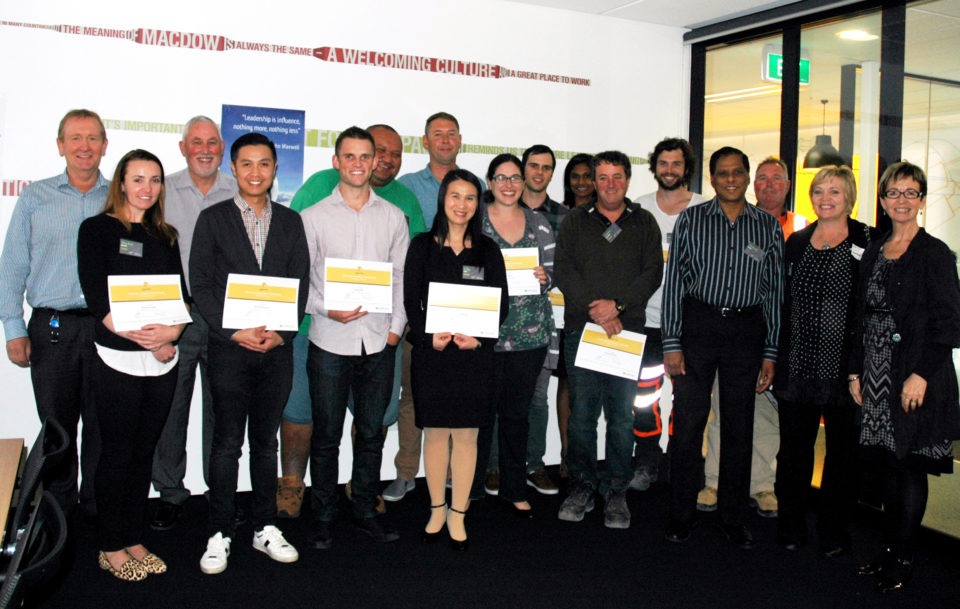A new leadership and development strategy is enabling McConnell Dowell to grow its next generation of managers and supervisors. The initiative recently launched in Auckland with a programme for leading hands and supervisors, which led to a First Line Management Level 3 qualification. Following the success of the pilot, it is anticipated that further programmes will be developed and rolled out across the country.
MCCONNELL DOWELL IDENTIFIED a need to increase leadership skills at all management levels during a recent review. It then engaged Leadership Development New Zealand to develop a First Line Management programme. Industry training organisation Connexis supported the programme.
The programme aimed to improve the performance of leading hands and supervisors in four core skills – communication, managing people, conflict management/resolution and maximising team performance. Participants included office, project and field staff and ranged from new employees through to people with many years of experience. All had been identified as new or potential leaders, but with no formal leadership training or qualifications.
Performance improvement consultant Terry Lewis and the team at Leadership Development New Zealand developed a programme for the group to help them understand key leadership concepts and techniques. The group applied these skills to their improvement projects with the aim of adding value to an existing business process.
Lewis says that the objective of the programme was to create a win-win for employer and employee with measurable results. “When looking for projects, for example, we were specifically looking for ones that would add something to the quality of the businesses outcomes, working environment, worker satisfaction or the product and services of the business. There was also a big focus on individual issues and areas for growth – as members of team, team leaders and individuals.”
Lewis continues, “Another outcome of the programme was inter-team communication, which is extremely important. In large businesses with multiple teams and departments such as McConnell Dowell, people often end up intentionally or unintentionally working in silos. The programme enabled us to bring those silos together and to increase understanding and communication across teams.”
The programme was delivered over a series of 10 full day sessions, with three weeks between each. The timing allowed participants to take their learning and apply it in the workplace (and in their own lives). Participants completed assessments throughout the programme, and delivered an individual presentation to the rest of the group, senior management and guests at the last session. Each participant had a dedicated mentor from within McConnell Dowell (usually their line manager) to support them in their learning.
Lewis says, “It was a pleasure to work with McConnell Dowell on this initiative. The programme demanded a real commitment from the business, and they didn’t disappoint. Everyone – participants and their line managers – was really engaged, which was fantastic. One of the KPIs for the initiative was that the whole group not only attended the course, but completed the National Certificate in Business (First Line Management) Level 3 qualification. I am delighted that this was achieved.”
McConnell Dowell learning and development manager Anand Naidu believes that the company is already benefiting from the programme, “while participants have also come up with innovative ideas that could benefit our business in future”. He explains: “The McConnell Dowell Leadership Development strategy focuses on four stages of management. These are: leading hand/supervisor, aspiring leaders, senior leaders (predominantly engineers) and executive leaders (senior managers and directors). Following the success of the First Line Management pilot we’ll gradually be rolling out leadership programmes for all management levels. McConnell Dowell is no different to the rest of the industry in that we need to adapt to the changing workforce. Identifying and growing our future leaders now will ensure we have the skills we need for the future.”


Parting words from Jeremy Sole- a final column